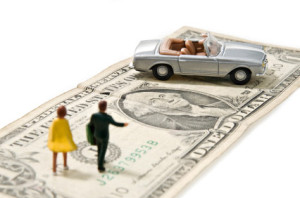 There are many reasons why it can sometimes be a good idea to borrow money. It can make it possible to invest in assets in a way that makes financial sense – for instance, taking advantage of a discount on a new sofa that’s really needed, where the saving amounts to more than the interest on the loan. It can be about consolidating debt, using one big loan to pay off several smaller ones, which often results in lower overall interest payments and better terms and conditions. In some situations, it can be necessary to meet ordinary household expenses whilst waiting for a salary payment, especially if one has a variable income or creditors that are slow to pay. Getting a loan to pay for transport costs can also make sense by making it possible to stay in work and thereby keep bringing some money in. Whatever the reason, it’s something that should be approached with caution – and with a clear plan for paying the money back firmly in place.
There are many reasons why it can sometimes be a good idea to borrow money. It can make it possible to invest in assets in a way that makes financial sense – for instance, taking advantage of a discount on a new sofa that’s really needed, where the saving amounts to more than the interest on the loan. It can be about consolidating debt, using one big loan to pay off several smaller ones, which often results in lower overall interest payments and better terms and conditions. In some situations, it can be necessary to meet ordinary household expenses whilst waiting for a salary payment, especially if one has a variable income or creditors that are slow to pay. Getting a loan to pay for transport costs can also make sense by making it possible to stay in work and thereby keep bringing some money in. Whatever the reason, it’s something that should be approached with caution – and with a clear plan for paying the money back firmly in place.
Borrowing options
The simplest way for most people to borrow money is by getting a loan from the bank, but rates can vary a lot and people with poor credit records may struggle to do this at all. Social fund and credit union loans can be a good bet but what’s available can vary by location. The Citizens’ Advice Bureau can provide guidance on this. Credit card loans can sometimes be a good way to borrow, within agreed limits, but can be very expensive if not paid back on time. Payday loans with dedicated lenders work for many people but should not be taken on without a careful assessment of what their interest rates really mean if you are late in paying. Store card loans are sometimes worthwhile when they also offer deals or discounts, but can be very expensive and should be treated with caution.
Generally speaking, loans are easier to get if secured against an asset like a house or car. These are known as secured loans. It is important to be aware that the asset could be at risk if the terms of the loan are not met. When taking out a loan it is a good idea to avoid the comfortable assumption it will be paid off on time and make a back-up plan for what can be done if that doesn’t happen.
Borrowing on a car
Thinking about the assets they have available, many people are quick to say “I’ll borrow money on my car!” As with all loans, there are good and bad ways to approach this.
Various different types of loan can be secured against a car, so it’s wise to shop around for a good interest rate. The most common type, logbook loans, mean that the lender technically owns the car whilst the loan is outstanding, but it’s still available for the borrower to drive. A good lender will not simply take the car if things go wrong but will work with the borrower to come up with a workable repayment plan.
Although they can be expensive, loans against cars generally provide a reliable way to get a large sum of money in just a few days, regardless of credit history. They’re generally cheaper than payday loans as the existence of collateral lowers the risk for the lender.
Tags: Assets, Car Finance, Car Loan, Debts, economy, financial planning, Interest Rate, loans

Recent Comments